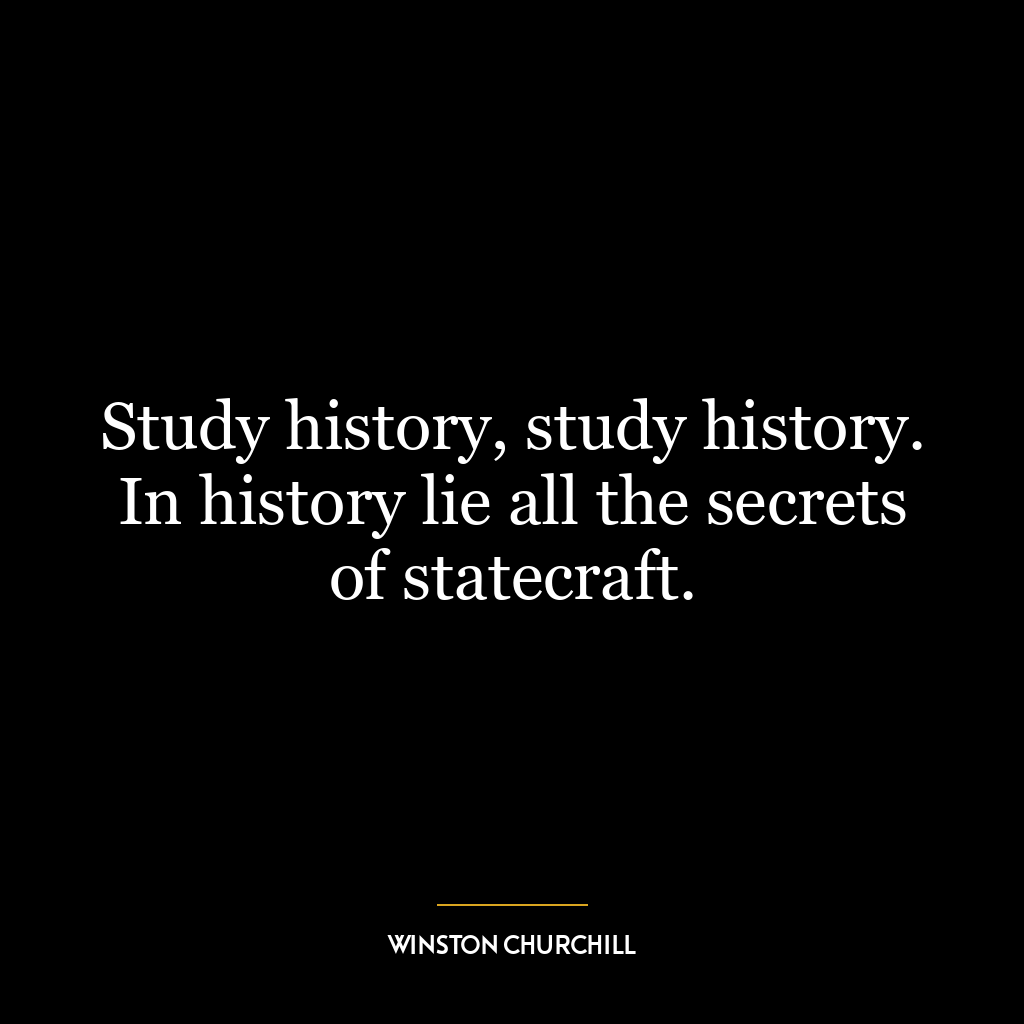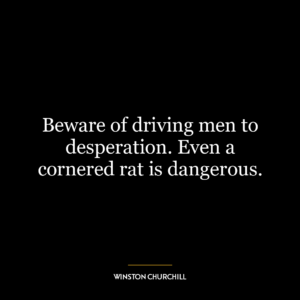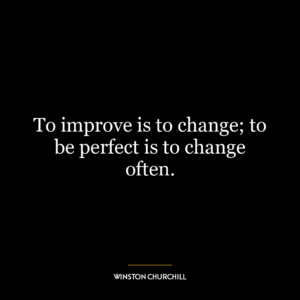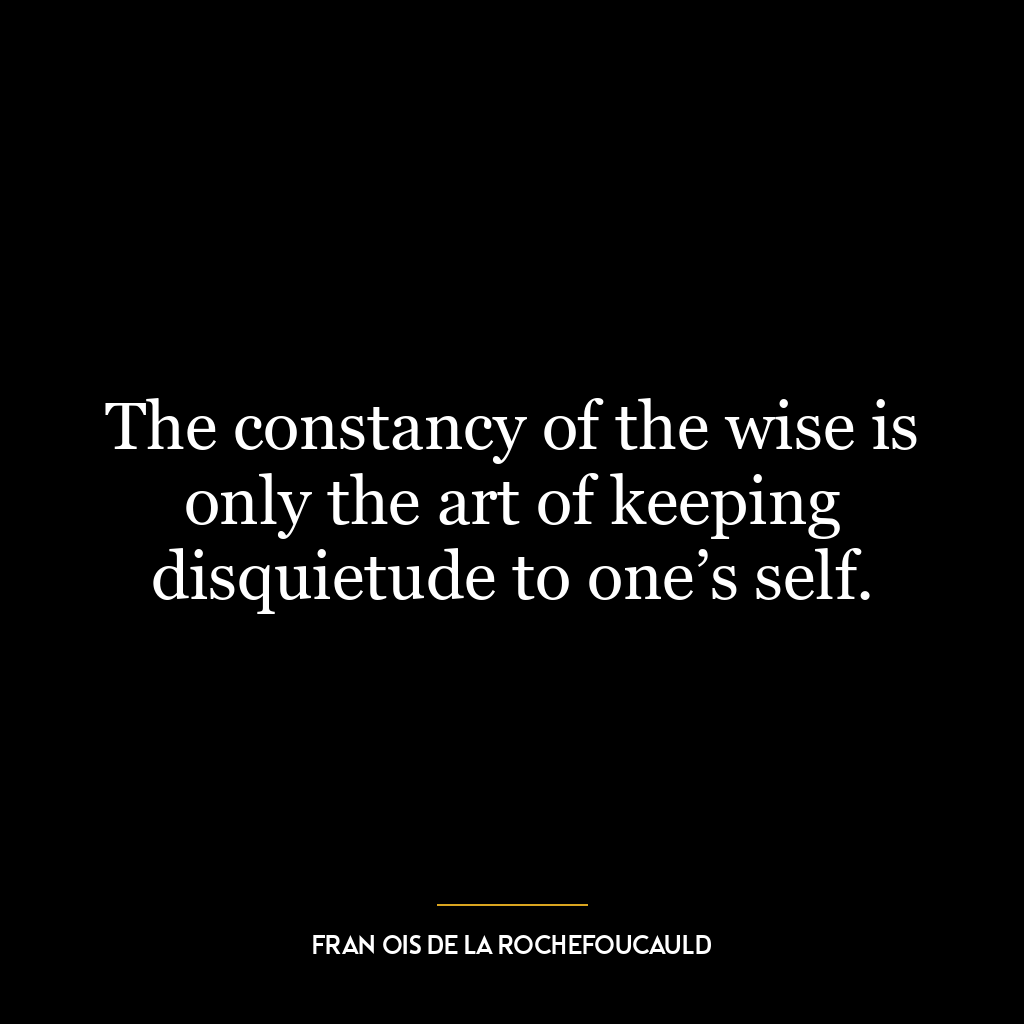Study history, study history. In history lie all the secrets of statecraft.
The quote emphasizes the importance of studying history as a means of understanding the intricacies of governance and politics. When Churchill refers to “statecraft,” he is referring to the art of conducting state affairs, which includes diplomacy, strategy, and administration. A deep understanding of history, according to him, is the key to mastering this art.
Studying history allows us to understand the causes and effects of past events, thereby providing us with valuable lessons. It offers insights into how different strategies have succeeded or failed in the past, which can guide decision-making in the present. Essentially, history serves as a repository of experiences and strategies from which leaders can draw.
Moreover, history also reveals patterns and cycles, enabling us to predict certain outcomes based on past occurrences. It provides a contextual understanding of human behavior, societal changes, and power dynamics. This knowledge is crucial in statecraft, where leaders must navigate complex social, political, and economic landscapes.
In today’s world, this idea is still very applicable. For instance, understanding the history of international relations can help in predicting and managing conflicts between nations. Similarly, knowledge of economic history can guide policies to prevent financial crises.
On a personal level, studying history can be a tool for personal development. By learning from the mistakes and successes of others, we can make more informed decisions in our own lives. Furthermore, understanding history can help us become more empathetic and open-minded, as we gain insights into different cultures, perspectives, and experiences.
In essence, history is not just a record of the past, but a valuable resource for the present and the future. It offers lessons that can guide statecraft, personal decision-making, and our understanding of the world.















